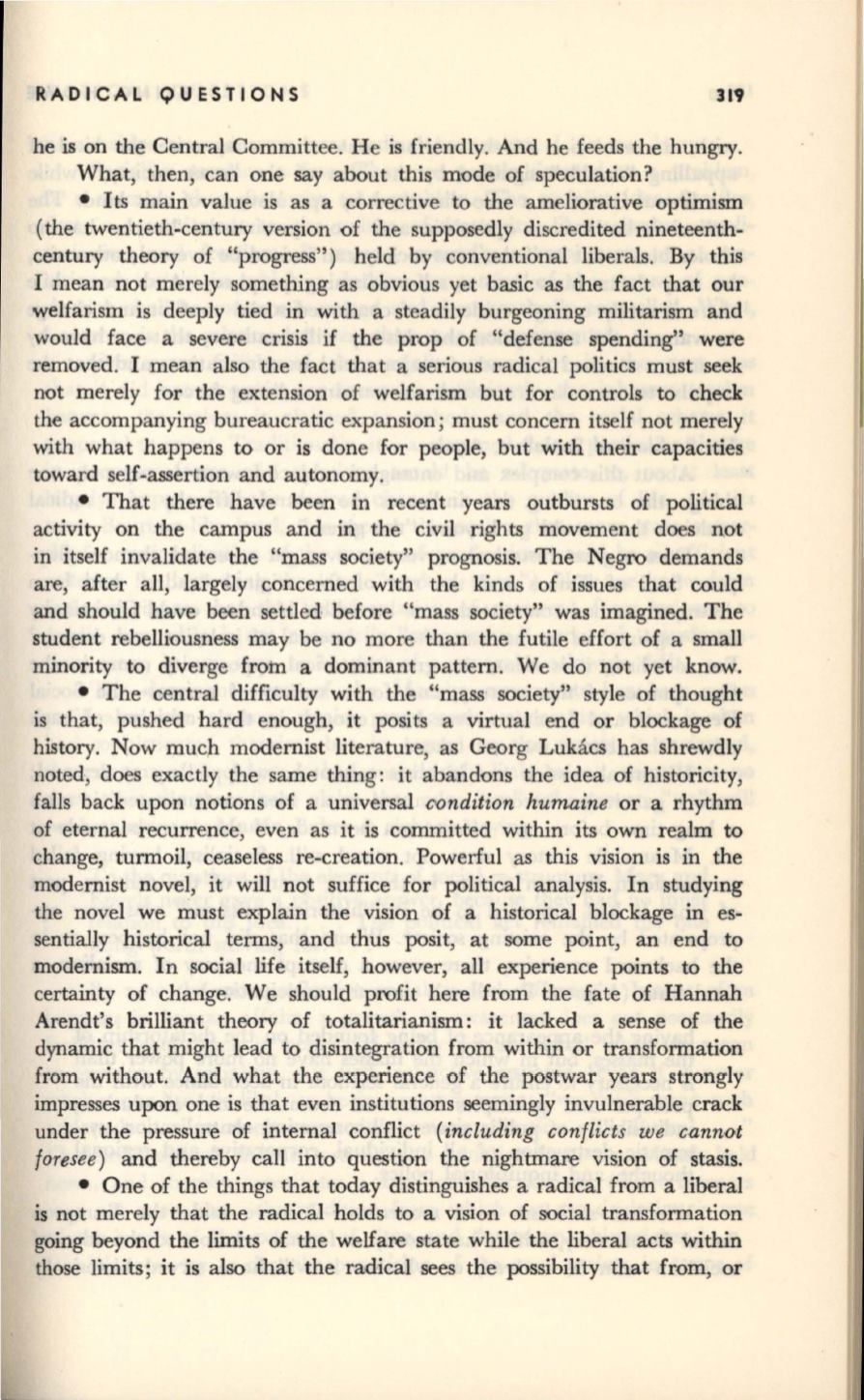
RADICAL QUESTIONS
319
he
is
on the Central Committee. He is friendly. And he feeds the hungry.
What, then, can one say about this mode of speculation?
• Its main value is as a corrective to the ameliorative optimism
(the twentieth-century version of the supposedly discredited nineteenth–
century theory of "progress") held by conventional liberals. By this
I mean not merely something as obvious yet basic as the fact that our
welfarism is deeply tied in with a steadily burgeoning militarism and
would face a severe crisis
if
the prop of "defense spending" were
removed. I mean also the fact that a serious radical politics must seek
not merely for the extension of welfarism but for controls to check
the accompanying bureaucratic expansion; must concern itself not merely
with what happens to or is done for people, but with their capacities
toward self-assertion and autonomy.
• That there have been in recent years outbursts of political
activity on the campus and in the civil rights movement does not
in itself invalidate the "mass society" prognosis. The Negro demands
are, after all, largely concerned with the kinds of issues that could
and should have been settled before "mass society" was imagined. The
student rebelliousness may be no more than the futile effort of a small
minority to diverge from a dominant pattern. We do not yet know.
• The central difficulty with the "mass society" style of thought
is that, pushed hard enough, it posits a virtual end or blockage of
history. Now much modernist literature, as Georg Lukacs has shrewdly
noted, does exactly the same thing: it abandons the idea of historicity,
falls back upon notions of a universal
oondition humaine
or a rhythm
of eternal recurrence, even as it is committed within its own realm to
change, turmoil, ceaseless re-creation. Powerful as this vision is in the
modernist novel, it will not suffice for political analysis. In studying
the novel we must explain the vision of a historical blockage in es–
sentially historical terms, and thus posit, at some point, an end to
modernism. In social life itself, however, all experience points to the
certainty of change. We should profit here from the fate of Hannah
Arendt's brilliant theory of totalitarianism: it lacked a sense of the
dynamic that might lead to disintegration from within or transformation
from without. And what the experience of the postwar years strongly
impresses upon one is that even institutions seemingly invulnerable crack
under the pressure of internal conflict
(including conflicts we cannot
foresee)
and thereby call into question the nightmare vision of stasis.
• One of the things that today distinguishes a radical from a liberal
is not merely that the radical holds to a vision of social transformation
going beyond the limits of the welfare state while the liberal acts within
those limits; it is also that the radical sees the possibility that from, or


